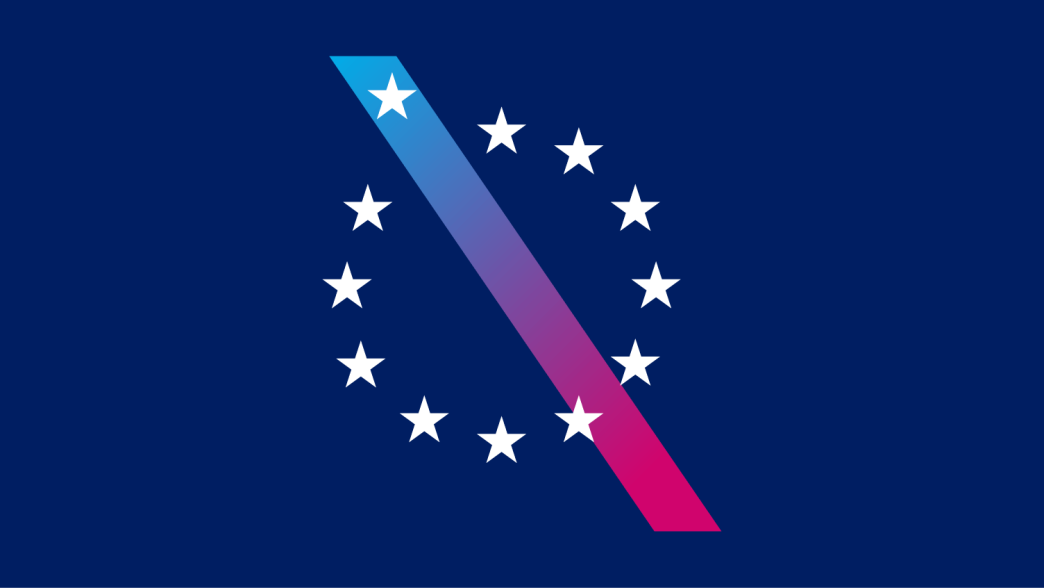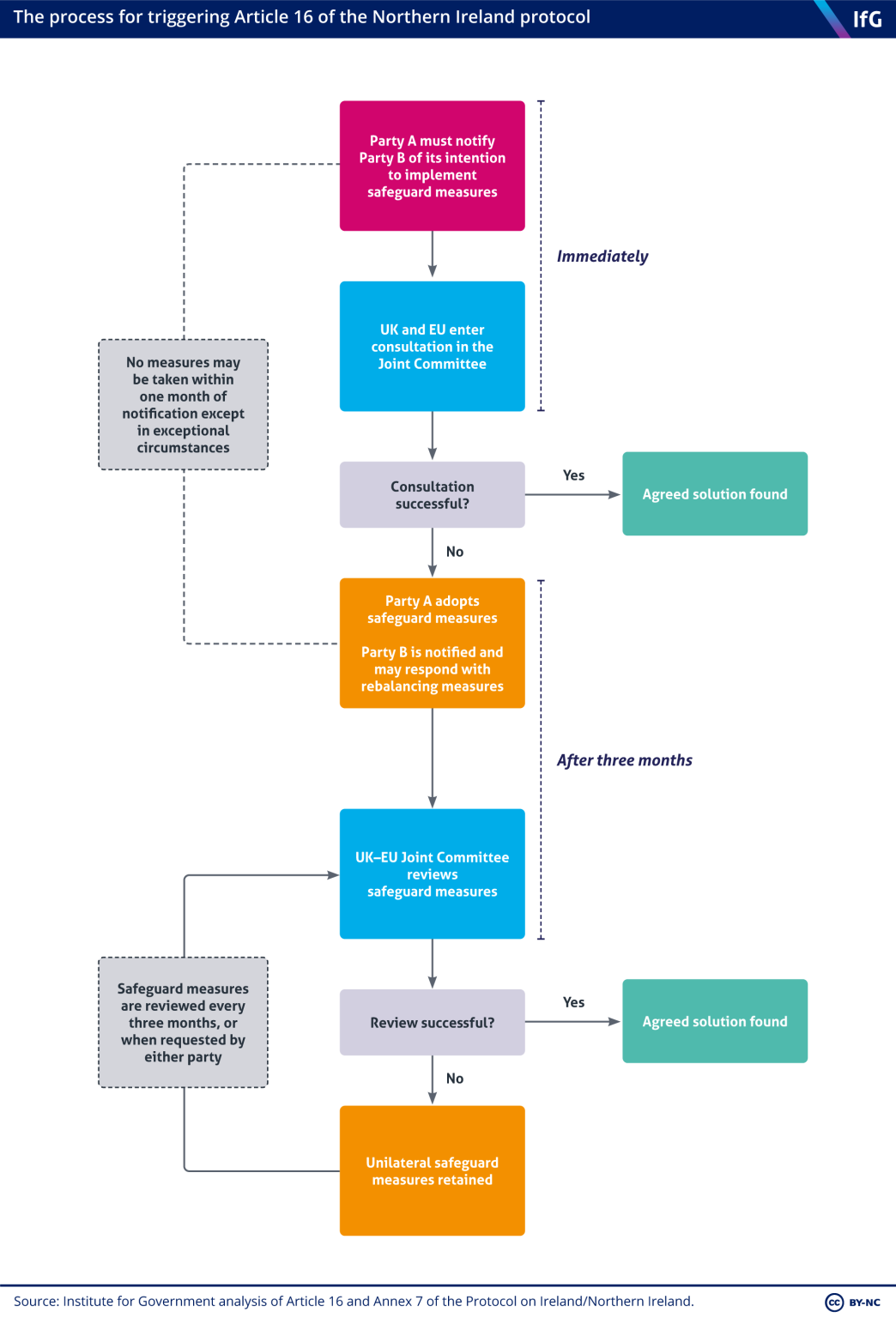Northern Ireland protocol: Article 16
Article 16 is a safeguarding mechanism within the Ireland/Northern Ireland protocol, the arrangements agreed as part of the UK–EU Withdrawal Agreement

What is Article 16?
Article 16 is a safeguarding mechanism within the Ireland/Northern Ireland protocol, the arrangements agreed as part of the UK–EU Withdrawal Agreement to avoid a hard border on the island of Ireland. Article 16 allows either party to undertake unilateral safeguarding measures if the protocol leads to “serious economic, societal or environmental difficulties that are liable to persist, or to diversion of trade”.
Any actions taken must be “restricted with regard to their scope and duration” and must only address the issues explicitly identified. Article 16 is not intended to allow either party to suspend provisions of the protocol permanently or in their entirety.
When can Article 16 be invoked?
The protocol does not define what constitutes either “serious economic, societal or environmental difficulties”, or a “diversion of trade”, so there remains ambiguity around threshold for taking unilateral measures.
Before undertaking such measures, however, the parties should follow the process set out in Annex 7 of the protocol. First, if either party is “considering” unilateral action, it must notify the other party as soon as possible through the UK–EU Joint Committee, the body established by the Withdrawal Agreement to oversee its implementation. At this point, both parties should enter negotiations to find a solution – though no measures can be implemented during the initial one-month negotiating period. If negotiations fail and either party adopts unilateral measures, the other may take “proportionate rebalancing measures”. All measures are subject to review every three months, although each party can also request a review at any point.

Has Article 16 been triggered?
To date, neither party has formally triggered Article 16. It has, however, been referred to by both the EU and UK.
Most notably, in January 2021, the EU proposed invoking Article 16 to allow export controls, designed to prevent Covid-19 vaccines produced in the EU from being exported without authorisation, to apply to vaccines being sent to Northern Ireland which could subsequently enter Great Britain. The EU justified this initial decision as necessary “to avert serious societal difficulties” it argued would arise if the vaccine supply to member states was disrupted.[1]
In this circumstance, the EU did not follow the procedures for invoking Article 16, or notify the UK of the proposals through the Joint Committee. Following strong criticism from the UK and Irish governments, as well as political parties in Northern Ireland, the EU quickly U-turned and amended the proposals before any unilateral measures were taken.
Nevertheless, the EU’s actions has strengthened opposition to the protocol among Northern Ireland’s unionist community. Then DUP first minister, Arlene Foster, said the move was an “act of hostility” and called upon the UK government to trigger Article 16 to remove checks and processes on goods moving from Great Britain to Northern Ireland in response.[2]
Will the UK government trigger Article 16?
The UK government has suggested it would be willing to use Article 16. In its ‘command paper’ published on 21 July 2021, Northern Ireland Protocol: The way forward, the UK government argued that the protocol has created a significant diversion of trade between Northern Ireland and Great Britain which would justify invoking Article 16, although the government concluded “that for the time being it is not appropriate to exercise its rights under Article 16”.[3]
In October, the EU published proposals to put forward proposals to address some of the problems created by the Northern Ireland protocol. Lord Frost, the UK Brexit minister, welcomed aspects of the proposals but said they did not go far enough; the UK and EU have now entered into discussions in the Joint Committee. Lord Frost has suggested that if an agreement cannot be reached, the UK may trigger Article 16.[4]
The UK government has not clarified what unilateral measures under Article 16 it might seek to introduce. If the EU believed that the UK was taking measures that did not adhere to the terms of Article 16 – for example, measures that did not clearly remedy the difficulties identified – it could challenge the UK’s actions under the UK–EU Withdrawal Agreement dispute settlement procedure.
- Campbell, J, “Brexit: EU introduces controls on vaccines to NI”, BBC, 29 January 2021, www.bbc.co.uk/news/uk-northern-ireland-55864442
- Ibid.
- HM Government, Northern Ireland Protocol: the way forward, CP 502, July 2021, available at https://assets.publishing.service.gov.uk/government/uploads/system/uploads/attachment_data/file/1004581/CCS207_CCS0721914902-001_Northern_Ireland_Protocol_PRINT__1___2_.pdf
- European Affairs Committee, Uncorrected oral evidence: The UK-EU relationship, 26 October 2021, https://committees.parliament.uk/oralevidence/2904/pdf/
- Topic
- Brexit Devolution
- Keywords
- Northern Ireland protocol
- Publisher
- Institute for Government